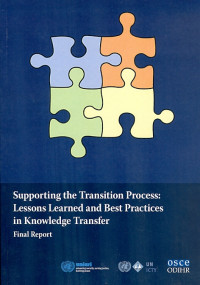
Text
Maid to order : ending abuses against migrant domestic workers in Singapore
Between 1999 and 2005, at least 147 migrant domestic workers died from workplace accidents or suicide, most by jumping or falling from residential buildings. There is no single reason why domestic workers resort to suicide, but research by Human Rights Watch suggests that many women are made despondent by poor working conditions, anxiety about debts owed to employment agencies, social isolation, and prolonged confinement indoors, sometimes for weeks at a time.
As authorities have acknowledged, many of the deaths are also due to workplace accidents. Several of the workers fell to their deaths after their employers forced them to balance precariously, despite being many stories up, to clean windows from the outside or to hang clothes to dry on bamboo poles suspended from window sills.
While the deaths of migrant workers described above have received increasing attention in the media and from policymakers, the context in which they occur too often is overlooked. This report, which draws on extensive research and more than one hundred interviews, surveys the abusive conditions facing many domestic workers in Singapore today.
Many migrant domestic workers in Singapore face abysmally long working hours, no weekly rest days, and low wages, areas neglected by Singapore's laws and addressed primarily through non-binding information guides. In many cases, migrant domestic workers in Singapore work thirteen to nineteen hours a day, seven days a week, and are restricted from leaving the workplace. They typically earn less than half the pay that workers earn in similar occupations in Singapore-such as gardening and cleaning-and are forced to relinquish the first four to ten months of their salaries to repay employment agency fees. In the worst cases, manipulated by agents or employers or both, migrant domestic workers suffer under conditions amounting to forced labor.
Singaporean officials are now beginning to give these problems serious attention. Authorities have imposed tough punishments on employers who physically abuse or fail to pay their domestic workers. Although increasing numbers of officials are turning their attention toward domestic workers, the problems persist. And while Singapore's applicable laws and regulations offer stronger protections than do those of neighboring countries such as Malaysia, Singapore is still far behind Hong Kong, which includes domestic workers in its main labor laws, protecting their rights to a weekly rest day, a minimum wage, maternity leave, and public holidays. Employers in Hong Kong must also bear most recruitment and placement fees, including the cost of visas, insurance, required medical exams, and round-trip transportation from the worker's hometown.
The Singapore government to date has preferred to rely on market forces rather than laws to regulate key labor issues for domestic workers such as charges imposed by employment agencies, wages, and weekly rest days. As a result, a migrant domestic worker's fate in Singapore is highly variable. She may secure a good employer and labor agent, enjoy favorable working conditions, and earn wages that she saves or regularly sends home. Or she may work for months without pay to settle debts incurred from exorbitant recruitment fees, labor for long hours seven days a week, and confront prohibitions from leaving the workplace. Singaporean authorities need to do more-through legal reform, enhanced public awareness campaigns, and more consistent law enforcement-to ensure all workers are protected against abuses and can readily seek redress when necessary.
Availability
| KP X.0000104 | KP X.INT m | My Library | Available |
Detail Information
- Series Title
-
-
- Call Number
-
KP X INT m
- Publisher
- [Jakarta] : Human Rights Watch., 2005
- Collation
-
124 hlm. ; 27 hlm.
- Language
-
Indonesia
- ISBN/ISSN
-
-
- Classification
-
KP X
- Content Type
-
-
- Media Type
-
-
- Carrier Type
-
-
- Edition
-
-
- Subject(s)
- Specific Detail Info
-
-
- Statement of Responsibility
-
-
Other version/related
No other version available
File Attachment
Comments
You must be logged in to post a comment
 Computer Science, Information & General Works
Computer Science, Information & General Works  Philosophy & Psychology
Philosophy & Psychology  Religion
Religion  Social Sciences
Social Sciences  Language
Language  Pure Science
Pure Science  Applied Sciences
Applied Sciences  Art & Recreation
Art & Recreation  Literature
Literature  History & Geography
History & Geography